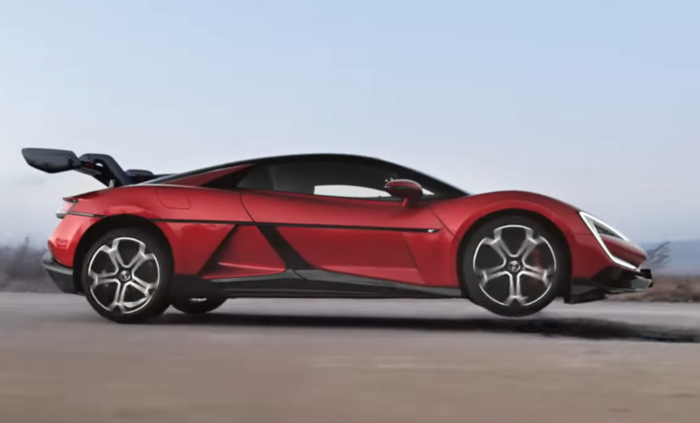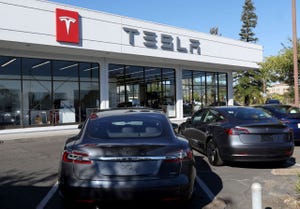Ban on Connected Car Tech From China, Russia FinalizedBan on Connected Car Tech From China, Russia Finalized
Ruling will prevent Chinese and Russian tech developers from testing connected car systems in the U.S.

The United States’ ban on the sale or import of connected and autonomous cars featuring key tech from China or Russia has been finalized by the outgoing Biden administration.
The move, originally proposed last September, was confirmed by the Department of Commerce’s Bureau of Industry and Security (BIS).
And the new rule will even prevent Chinese developers of self-driving taxis from testing in the U.S.
In a statement, BIS and its Office of Information and Communications Technology and Services (OICTS) said that it found that some technologies from the two countries “present an undue and unacceptable risk to U.S. national security.”
Secretary of Commerce Gina Raimondo – who has regularly pointed out that today’s cars are now essentially computers, with cameras, microphones, GPS tracking and other technologies connected to the internet – said the ruling would take “a necessary step to safeguard US national security and protect Americans’ privacy by keeping foreign adversaries from manipulating these technologies to access sensitive or personal information.”
National economic adviser Lael Brainard added: “China is trying to dominate the future of the auto industry, but connected vehicles with software and hardware systems linked to foreign adversaries could expose the American people to risks of misuse of their sensitive data or interference by malicious actors.
“[This] rule will prohibit Chinese and Russian software and hardware from being used in connected vehicles on American roads, protecting consumers and ensuring a more secure American auto industry.”
Initially at least, only passenger cars are covered by the finalized rule, but similar rules that would apply to buses and trucks are being considered for the future.
What, in essence, it means is that cars from Model Year 2027 onward which feature Chinese and Russian-developed software related to connectivity and autonomous driving will not be allowed to be sold in the U.S. – even if they were assembled in America. Restrictions on cars with relevant China or Russia-developed hardware take effect for Model Year 2030 vehicles.
In regard to the edict on testing, three of the biggest Chinese self-driving operations – Baidu’s Apollo Go, Pony.ai and WeRide – all have permits to test without human safety monitors in California, but have not done so at any great scale. What happens to these licenses in the wake of the new ruling remains to be seen.
While the finalization of the rule is not unexpected, it prompted an angry reaction from China, whose automakers have previously been hit by hefty tariffs for electric vehicle imports from Biden. The country’s Ministry of Foreign Affairs said the rule violated the principles of market economy and fair competition, and was a form of economic coercion.
There are some concerns, too, from auto analysts about possible implications elsewhere, particularly if the European Union was to follow the U.S. and China issued tit-for-tat measures.
This could have the effect of splitting the global auto industry on an east/west basis, with more localized supply chains – and with Chinese automakers currently much more advanced in automation in particular, enjoying ready access to cheaper components such as sensors, the legacy makers of the west could be left even further behind, deprived of access to Chinese tech.
About the Author
You May Also Like








